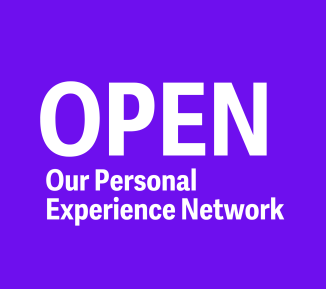The Diverse Experiences Advisory Panel (DEAP) brings together people from various communities and backgrounds with varied lived experiences and perspectives. DEAP members draw on their experiences and perspectives to inform government policy and how it can support better mental health and well-being for people and communities across Scotland.
This new initiative was initially running for two years and began in the spring of 2022. DEAP is a partnership with the Mental Health Foundation and the Health and Social Care Alliance Scotland (the ALLIANCE). The Scottish Government substantially funds it.
On this page, DEAP members share more about the panel, their ongoing work and the latest updates.

Who are DEAP?
We are a group of 20 to 30 people with diverse identities and life experiences. We meet at least four times annually and are kept updated on progress by email. We draw on our lived experiences and perspectives to advise the Scottish Government and others on how public policy can help to reduce inequalities and support more people to experience good mental health.
We come from a wide range of backgrounds, including geographies and ages, racialised groups and ethnic communities and different sexualities and genders. Among us, we have wide-ranging life experiences. These include, but aren’t limited to, experiences of long-term health conditions, disability, neurodiversity, care experience, homelessness, unemployment, poverty, immigration and asylum seeking, discrimination, abuse, loneliness and isolation, substance use, bereavement, trauma, unpaid caring and/or experiences of mental health problems.
None of us is defined by a single experience or identity; we are each unique, complex individuals with many experiences that shape our lives. We advise on policy from our lived experiences and perspectives rather than from a professional or academic perspective.
Why do diverse experiences and perspectives matter for mental health?
We all have mental health. Many things shape our experience of mental health. Experiences of inequality, discrimination and/or exclusion can increase the risk of poor mental health and create barriers to well-being.
Our work considers the many factors that shape mental health and well-being and how these interact. These factors aren’t just about physical and mental health; they are not limited to health and social care services.
They also include:
- Our social circumstances. Do we have a support network? Do we feel able to be ourselves with our family and friends, in our workplace and in our community? Do we experience stigma or discrimination? Can we make decisions about our own lives?
- Our economic circumstances. Do we have safe, warm and comfortable housing? Do we struggle to pay for essentials? Are we paid a fair wage? Are we unemployed or in insecure work? Do any benefits we receive support us in living a comfortable and healthy life?
- Our environment. Do we have access to green spaces? Are we able to get around our community? Do we have space to go outside, exercise, or meet our friends? Are we excluded from activities and services because buildings, transport or other facilities are not accessible to us?
- Our life experiences. How do our life experiences affect our mental health and well-being, both good and bad? What do experiences like having a long-term health condition, facing discrimination, experiencing poverty or homelessness or being an unpaid carer mean for our mental health and well-being?
What are we working on?
We are sharing our views to inform the Scottish Government’s new Mental Health and Well-being Strategy. We continue developing our future work plan and will share updates on this webpage.
What's it like being on the panel?
DEAP member Carola has written a blog about her first year as a member of the panel.
If an individual or organisation would like to discuss a project, event or piece of policy that may be of interest to DEAP, please email Gill Meens.
Email Gill
Related content
OPEN network

Voices of Experience (VOX)

Mental Health and Wellbeing Strategy for Scotland 2022
